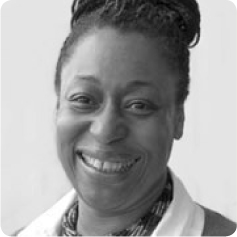
The worldwide pandemic COVID-19 has caused our lives to become unrecognisable. Aesthetic nurses have closed their businesses, furloughed staff and are waiting to see if claims with insurances companies go through. Many have gone back into the NHS to work on the frontline. Personally, I am SARS-CoV-2 testing NHS staff with symptoms for potential COVID-19. Worldwide reflective accounts from nurses working on the frontline are available on all media platforms, the accounts are distressing, but regardless of how awful they may be, they are also humane in their compassion. Nurses are experts in the art and science of care. Some will have harrowing stories to tell about the lack of PPE. The Royal College of Nursing (RCN) has been proactive in advising its members on what to do if there is a lack of PPE, along with the legality of refusing to treat—obviously this is a ‘last resort’ (RCN, 2020). Some nurses will find that they are working entirely outside of their comfort zones; others will have gone back to roles they left or still work in part-time (Stephenson, 2020). Dame Donna Kinnair, the RCN chief executive and general secretary, has ensured that our fellow nurses who have died will be remembered not just as ‘some nurses’.
Websites and webinars
For those who are in self-isolation, there are a plethora of websites and webinars offering online teaching. Check out the British Association of Cosmetic Nurses (BACN) Facebook or Instagram pages for dates and times.
For readers who want to learn more about COVID-19 the RCN, FutureLearn and Medscape will keep you up to date. Furthermore, I recommend a comprehensive article on COVID-19, which can be accessed for free from Science (Wadman et al, 2020). The World Health Organization (WHO) also has COVID-19 short online tutorials.
Increase in appearance-related concerns
In their blog Beauty Demands, the #everydaylookism team at the University of Birmingham have noted that lockdown may intensify appearance-related concerns, especially with the increased use of Skpe, Houseparty, WhatsApp and Zoom for work or just or keep in contact with family or friends. Suddenly, your image is projected onto the screen, which may magnify flaws and imperfections. Those anomalies and asymmetries seem so much larger on a screen and have the potential to increase insecurities. Then, add to the equation not having the reassurance one gets from others because of isolation. As aesthetic nurses, we should check in with those patients whom we know are vulnerable, or those that had an abrupt interruption of their treatment plans. Consultation via telephone or video can help our patients manage these feelings during lockdown. A good website for more information regarding body dysmorphia or appearance-related concerns is https://bddfoundation.org.
As this is an incredibly highly anxious time, there are many platforms out there designed to help alleviate stress and panic, which are free to nurses and other healthcare professionals. An easily accessible one is https://www.nhsinmind.co.uk.
Annual conference
The BACN board has decided that its annual conference will be moved from November 2020 to February 2021, with the final date to be affirmed.
The board, past and present, and some of our nursing colleagues will be taking part in a social media message that will target our patients and the public.
In these unprecedented times, please stay safe. As a speciality, we are a unique group of nurses. Some of us are business owners, while some of us still work in the NHS, and all are dealing with current challenges and uncertainty. So, for now, we wait and ‘flatten the curve’.



